Vikings are known for their fierce reputation in battle and their love for single combat. As a result, dueling to the death was an important part of Viking culture, and it served as a way for warriors to prove their worth and honor.
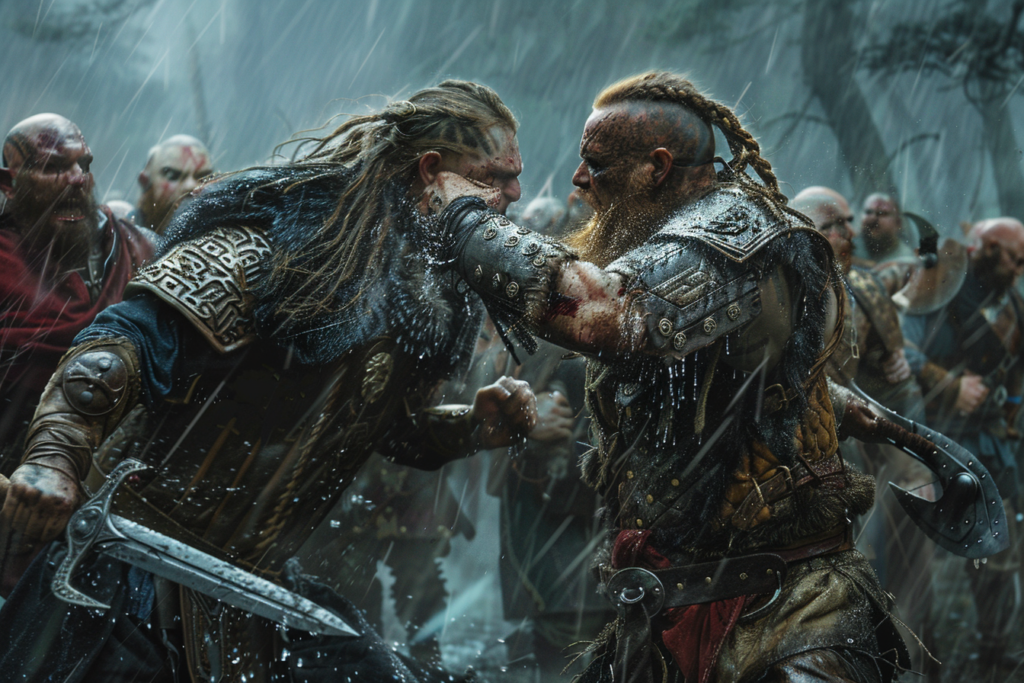
At its core, dueling was a way for Vikings to settle disputes and conflicts without resorting to full-scale warfare. Single combat was seen as a way to resolve conflicts honorably, and it was often used to settle disputes over land, property, or personal grievances.
In some cases, dueling was even used as a form of legal arbitration, with the winner of the duel being seen as having the right to claim the disputed property or settle the legal matter.
However, single combat was also seen as a way for warriors to prove their worth and honor. In Viking culture, a man’s reputation was everything, and a warrior’s ability to fight and win in single combat was seen as a measure of his strength, courage, and honor.
As a result, many Vikings sought out opportunities to duel, both to settle disputes and to prove their worth as warriors.
Historical Context of Duels in Norse Society
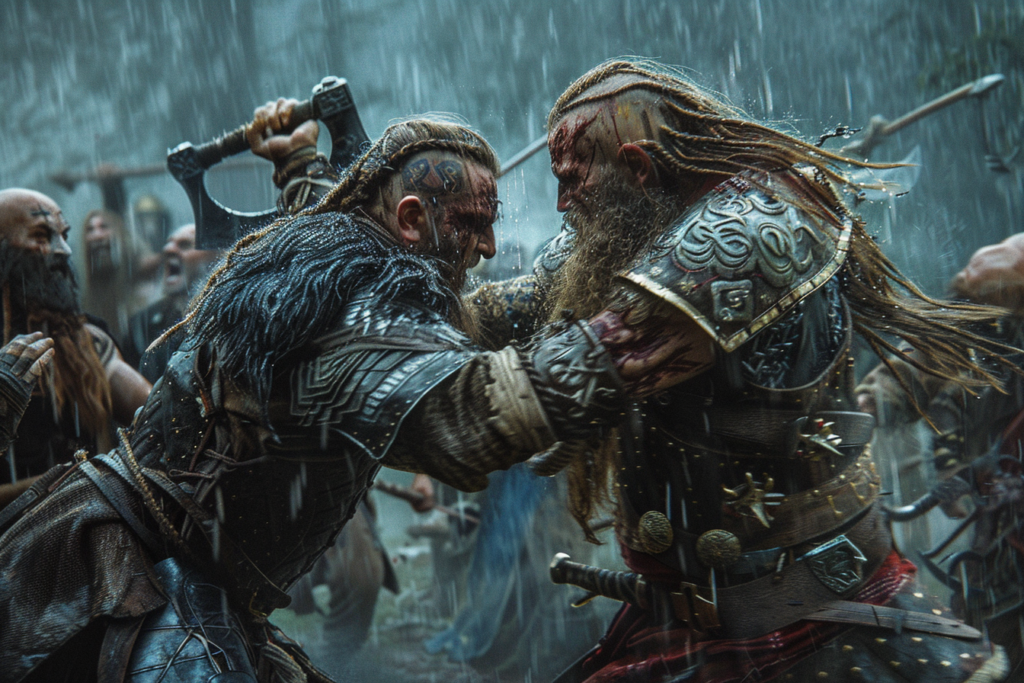
The Viking Age and Its Warriors
The Viking Age lasted from the late 8th century to the mid-11th century. During this time, Norse people were known for their seafaring skills, raiding, and trading. However, they were also skilled warriors who valued honor and bravery.
Vikings were expected to be skilled in combat, and warriors were highly respected in Norse society. They were often the leaders of their communities and were responsible for protecting their people. It was this emphasis on martial prowess that led to the development of dueling as a way to settle disputes.
Laws and Legal Systems in Medieval Scandinavia
In medieval Scandinavia, laws were often based on local customs and traditions. However, there were also legal codes that applied to larger regions. For example, the Norwegian law code known as the Hednalagen was used throughout Norway in the 13th century.
One common way to settle disputes was through single combat. The holmgang was a duel that took place on a small, isolated island, and was used to settle disputes over honor, property, and other matters. The einvigi was another form of single combat that was used in Iceland and other parts of Scandinavia.
While dueling was not the only way to settle disputes, it was an important part of Norse legal systems. The winner of a duel was considered to be in the right, and the loser was often required to pay compensation to the winner.
Cultural Significance of Dueling
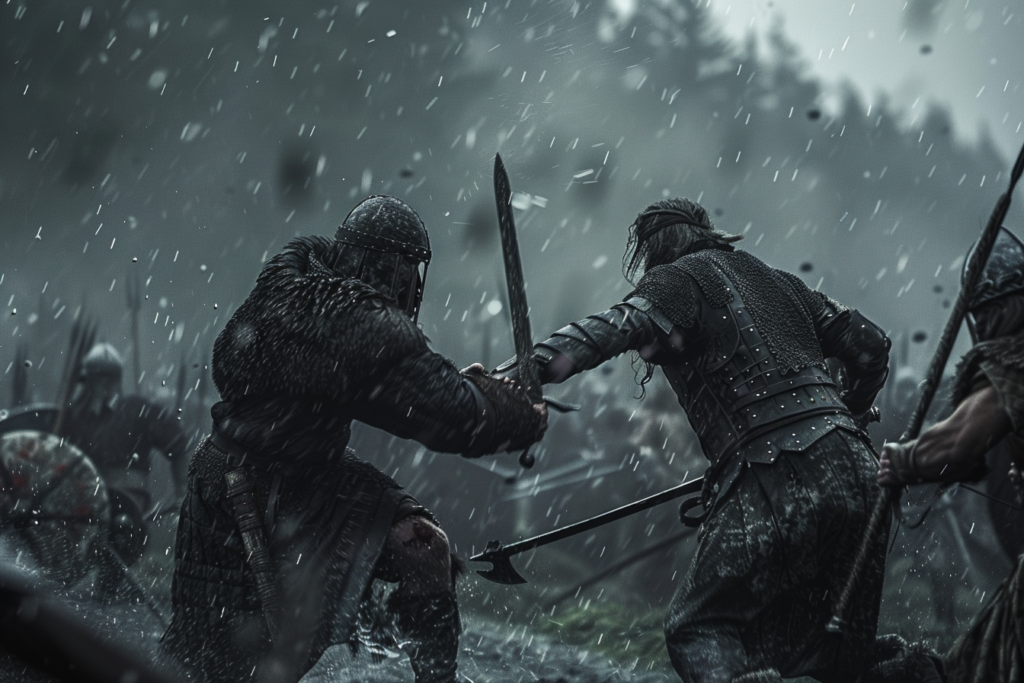
Dueling was a significant cultural practice among the Vikings, and it played an important role in their society. The Vikings believed that dueling was a way to resolve disputes, restore honor, and maintain social status.
Honor and Social Status
For the Vikings, honor was everything. It was a measure of a person’s worth and reputation in the community. The Vikings believed that dueling was a way to prove their worth and honor.
Winning a duel was seen as a way to demonstrate one’s strength, courage, and skill, and it was a way to gain respect and admiration from others.
Social status was also an important factor in Viking society. Dueling was a way to maintain one’s social status and reputation.
A person who refused to duel or who lost a duel would be seen as weak and dishonorable, and their social status would suffer as a result.
Resolving Disputes and Feuds
Dueling was also used as a way to resolve disputes and feuds. The Vikings believed that dueling was a fair and just way to settle disagreements, and it was a way to avoid prolonged and costly legal battles.
In cases where a person had been wronged or insulted, dueling was seen as a way to seek justice and compensation.
The concept of weregild, or compensation for injury or death, was an important part of Viking law, and dueling was a way to settle disputes and avoid the need for weregild.
In cases where a feud had arisen between two families or clans, dueling was a way to end the feud and restore peace. The victor in a duel would be seen as the rightful winner of the dispute, and the loser would be expected to accept the outcome and move on.
Rituals and Rules of Engagement
The Holmgang and Einvigi Duels
The Vikings had a complex system of dueling, which varied depending on the region and the time period. The two most common forms of dueling were the Holmgang and the Einvigi.
The Holmgang was a ritualistic duel that was fought on a small, circular island or a piece of land that was surrounded by water. The combatants would stand in the center of the island, and the duel would continue until one of the fighters was either dead, incapacitated, or surrendered.
The purpose of the Holmgang was to settle disputes without resorting to a full-blown war. It was considered a way to preserve honor and to avoid unnecessary bloodshed.
The Einvigi, on the other hand, was a more formalized type of duel that was fought on a battlefield. The fighters would engage in combat until one of them was either dead or unable to continue.
The Einvigi was often used as a way to settle disputes between different clans or tribes. It was also used as a way to determine the outcome of a legal dispute, such as in a trial by combat.
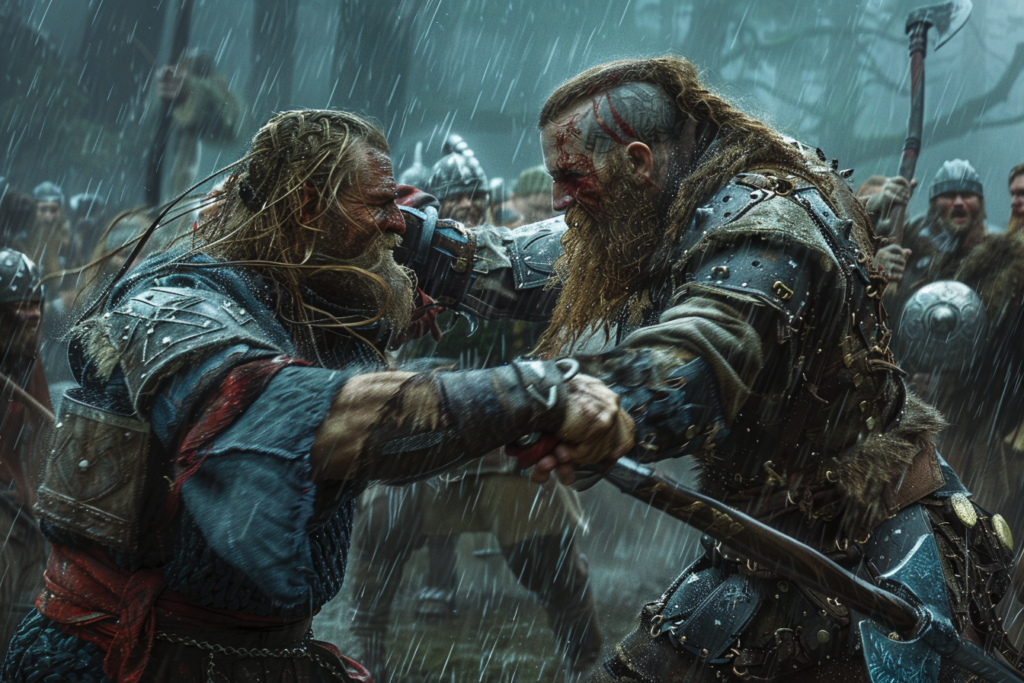
Weapons, Shields, and Combat Practices
The weapons used in Viking duels varied depending on the time period and the region. Some of the most common weapons included swords, axes, spears, and bows.
Shields were also an important part of Viking combat, and they were used to block incoming attacks and to provide cover for the fighter.
The combatants would often wear protective clothing, such as chainmail or leather armor, to protect themselves from injury.
The combat practices of the Vikings were highly ritualized and governed by a set of rules known as the hólmgangulog. The rules of engagement varied depending on the type of duel and the region, but they generally included rules about the use of weapons, the behavior of the fighters, and the conditions under which the duel could be fought.
For example, in a Holmgang, the first fighter to draw blood was considered the winner. In an Einvigi, the winner was determined by the death or incapacitation of one of the fighters.
Consequences and Outcomes of Duels
From Victory to Outlawry
Duels were a way for Vikings to settle disputes and prove their honor. However, the consequences of a duel could be severe.
If a Viking won a duel, they would be seen as a hero and their reputation would be enhanced. On the other hand, if a Viking lost a duel, they would be seen as weak and their reputation would be tarnished.
In some cases, the loser of a duel would be outlawed and banished from their community. This meant that they would lose their property, their family, and their clan. They would also be unable to seek justice for any wrongs done to them.
Outlawry was a serious punishment and was only used in the most severe cases.
Impact on Families and Clans
The outcome of a duel could also have a significant impact on the families and clans of the combatants. If a Viking was wounded or killed in a duel, their family and clan would be responsible for seeking justice. This could lead to further violence and feuds between families and clans.
If a Viking was unable to pay a debt or fulfill an obligation, they could be challenged to a duel by their creditor. If they lost the duel, their property would be seized and given to the creditor. This could have a devastating impact on the Viking’s family and clan, as they would lose valuable resources and their reputation would be tarnished.
In some cases, a Viking who was seen as a coward or a niðingr (a person without honor) could be challenged to a duel by anyone who wished to restore their own honor. If the challenged Viking refused to fight, they would be seen as a coward and their reputation would be further damaged. If they accepted the challenge and lost the duel, they would be outlawed and banished from their community.

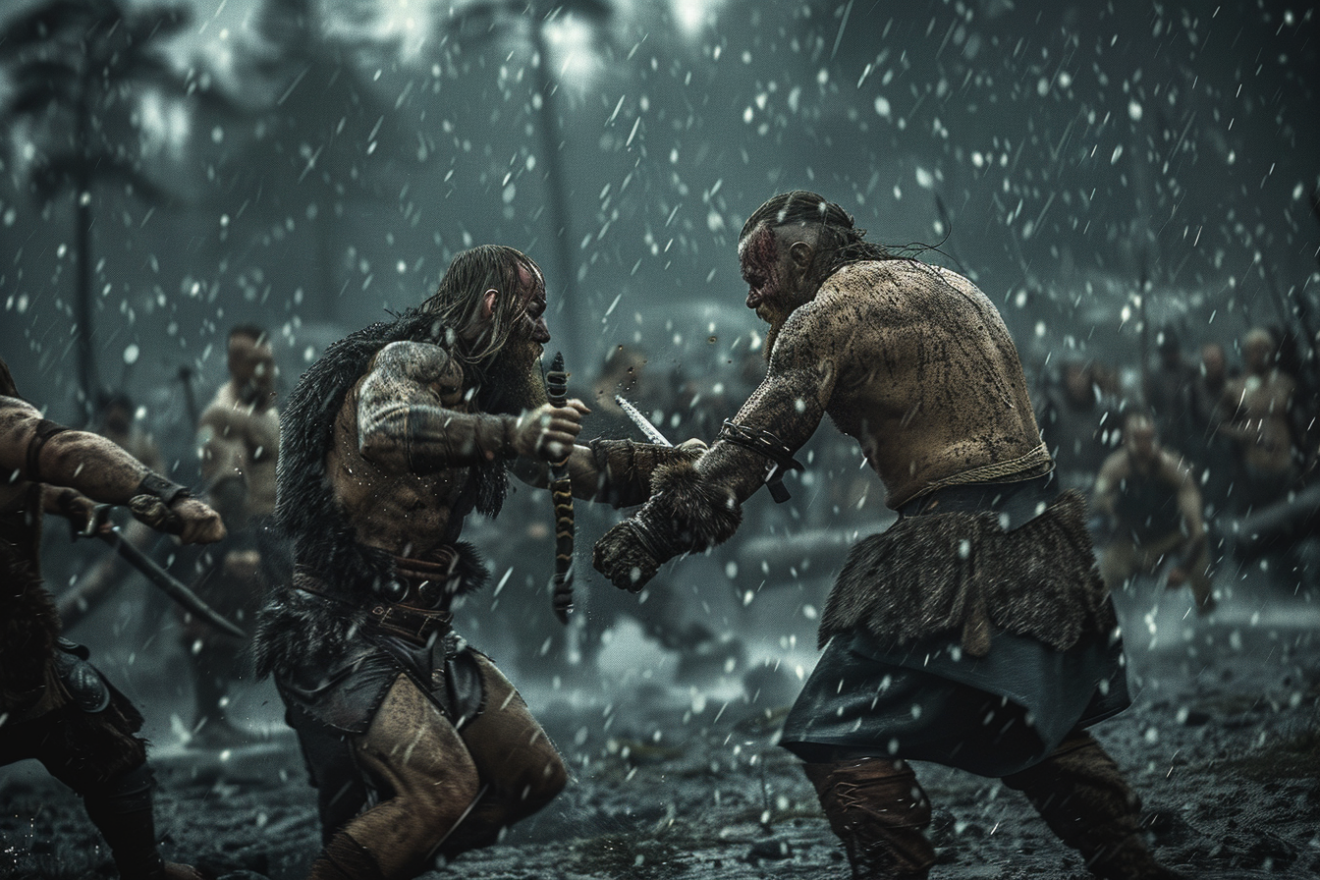


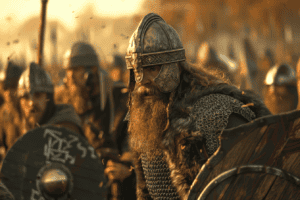





Add Comment